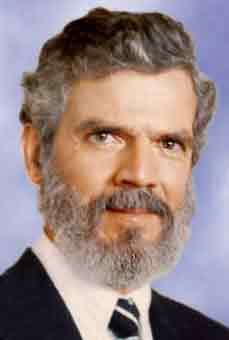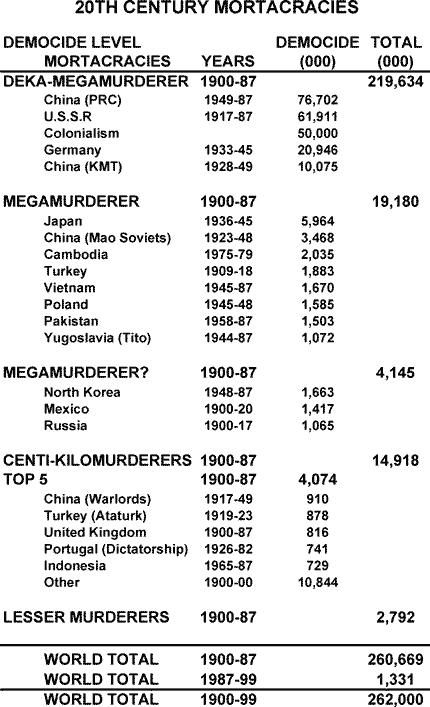A Moment for the Late R.J. Rummel, Who Documented the Murderous Nature of Government

It's horrifying that it's both possible and necessary to parse different kinds of mass slaughter by governments. But the fact is that hundreds of millions of people have been murdered by states because of their membership in ethnic groups, religious beliefs, opposition to the regime of the moment, expediency, or for sheer bloody-mindedness. The term "democide," encompassing all killing by a state (including politicide, genocide and mass murder), was coined by Prof. R.J. Rummel, who died March 2.
Democide matters, according to Rummel, who authored 24 books examining the murderous nature of the state, because of its mindboggling scope. It also matters because the antidote is freedom, which is best promoted, he thought, by democracy. In fact, he claimed that liberal democracies not only killed fewer people than authoritarian regimes, but that they simply do not wage war on one another—though the absolute nature of that claim sparked argument.
We know about the Holocaust, about the Soviet purges, and about Mao's famine. But what kind of body count does democide encompass?
On his website, still maintained by the University of Hawaii Political Science Department, Rummel noted, "given popular estimates of the dead in a major nuclear war, this total democide is as though such a war did occur, but with its dead spread over a century."
The specific numbers of dead kept rising as Rummel's research continued, especially as he gathered records of horrifying colonial-era misdeeds and of the stacks of bodies piled by secretive communist governments. His final total for 20th century victims of state power was 262,000,000.

Rummel went beyond the morbid busines of counting the dead, and maintained, "It is true that democratic freedom is an engine of national and individual wealth and prosperity. Hardly known, however, is that freedom also saves millions of lives from famine, disease, war, collective violence, and democide (genocide and mass murder). That is, the more freedom, the greater the human security and the less the violence."
He also pointed out that democracies are less likely than autocratic regimes to unintentionally kill their subjects through corruption and incompetent policy.
More controversially, he went beyond the assertion that freedom as protected within liberal democracy reduces violence to a claim that "democracies do not make war on each other."
He sparred with the Cato Institute's Ted Galen Carpenter (PDF), among others, over that assertion.
Horror at the results of his research colored Rummel's political views. He advocated intervention by democratic regimes against authoritarian ones in general, and the Iraq War in particular. Originally a socialist and then a libertarian, Rummel in 2005 began calling himself a "freedomist" to differentiate himself from the non-interventionist tendency of many libertarians. That self-identification seemed to continue through his later writings.
Ironically for a researcher who touted freedom as the cure for murderous regimes, he so favored the Iraq War, that he came to support press censorship to counter what he perceived as hostility towards the effort among journalists. Specifically, he wanted the U.S. government to control coverage so far as military operations were concerned: "I would use the censorship of World War II as criteria. This would mean, for example, that news reports of secret commando operations in Iran, or the employment of a secret weapon, or … well, you get the idea."
Whatever the self-contradictory details of his later calls for curbing freedom in order to promote freedom, Rummel's work remains horrifying, eye-opening, and worth reading. Check out Power Kills and Death by Government.


Show Comments (16)